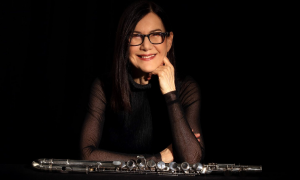Home » Jazz Articles » Interview » Hal Galper: Adventures In The Zone
Hal Galper: Adventures In The Zone
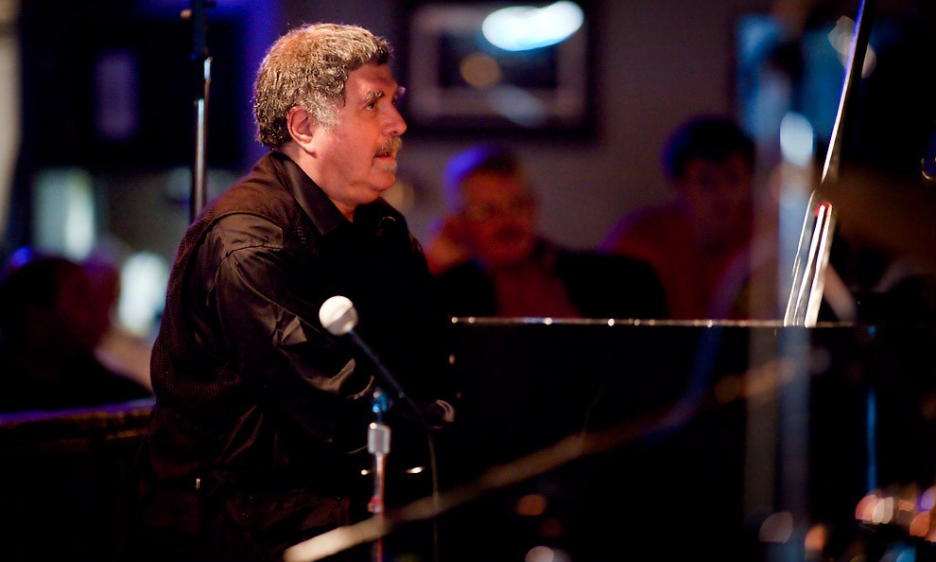
Courtesy Daniel Sheehan
What happens in the zone, stays in the zone.
—Hal Galper
Hal Galper
piano1938 - 2025
Now at the age of 82, Galper can clearly see that his aversion for the business aspect of music was justified, as the demonetization of the recording industry, and the devastating impact of the Covid-19 pandemic on live performances makes life extremely difficult for his fellow artists. He can sense, as he always has, that the profit motive and art are strange, and often fatal bedfellows.
"The music business is not a business-it's legalized thievery. I'm still pissed at the fact that your art is defined by how much money you make for a lot of people. I resented being put in that position. The profit motive and art do not mix, it kills the art. I didn't want 'a name,' I didn't want a manager telling me what to do, and taking money out of my pocket for it. The question was if I could have a career and not have 'a name.' That's what I did. I've played on 106 albums, written two books with a third in the making. With the release of Cubist (Origin, 2018), I realized at that point, I had achieved every goal I had set for myself, it was a shock. I was hanging out with

Chris Botti
trumpetb.1962
Sequestered in his Sullivan County home in upstate New York, Galper could never play another note, or write another word, and still maintain a legacy within the music itself that is rare and exemplary. Yet, he is working on his third book, and pulling gems from his archive to release. Unable to go out on the road for health reasons, he was playing a weekly gig pre-Covid, in the small town of Callicoon, at last scoring a true "home gig," in the rural setting of the Catskills just north of New York City.
"I've been living up here in Sullivan County for forty-five years, and in a small town near me called Callicoon, there's a little club called Rafter's. I ended up getting a once-a-week, Sunday night, hour-and-fifteen-minute concert set at this club-a home gig. I couldn't believe my luck, it's something every musician hopes to have—a one-night-a-week gig in the same place, steady. I'm two hours from any musicians, but they come to play with me, which is nice. I even bought a piano for the club," says Galper.
After a career that has seen him perform with the best of the best, both as a leader and a sideman, the draw for Galper to play a local tavern gig at his age, at this stage of his career, is the same as it has always been—the music itself. He has done virtually everything he set out to do in music, yet the allure of playing music with long-time musical acquaintances still burns bright within him.
"You go to the music because it pulls you to it. and I did it. I got everything I wanted from it. I got to play with the greats." he muses.
Galper began playing classical piano as a child, eventually turning to jazz and the Berklee School of Music in 1955. He took in the grandeur of piano genius in the 1950's, spearheaded by the likes of

Bud Powell
piano1924 - 1966

Ahmad Jamal
piano1930 - 2023
"I started out with

George Shearing
piano1919 - 2011

John Lewis
piano1920 - 2001

Red Garland
piano1923 - 1984

Tommy Flanagan
piano1930 - 2001

Wynton Kelly
piano1931 - 1971

Erroll Garner
piano1921 - 1977

Jaki Byard
piano1922 - 1999

Sam Rivers
saxophone, tenor1923 - 2011
Galper's experience in Boston led to a steady gig with jazz giant

Chet Baker
trumpet and vocals1929 - 1988

Joe Williams
vocals1918 - 1999

Anita O'Day
vocals1919 - 2006
The band included trumpeter

Randy Brecker
trumpetb.1945

Michael Brecker
saxophone, tenor1949 - 2007

Horace Silver
piano1928 - 2014
Soon thereafter, Galper replaced

George Duke
piano1946 - 2013

Cannonball Adderley
saxophone1928 - 1975
"I learned things from the masters, mainly from just playing with them, and observing how they did it,' says Galper. "Cannonball never talked about the music. Only once, Nat asked me for a few more ones. I said, 'Sure Nat, how many?'"
With the wisdom of time, Galper looks back at his role in the Adderly band, both as a pianist and composer.
"I think I played the gig wrong. I went in there with a kind of

Chick Corea
piano1941 - 2021

Jimmy Cobb
drums1929 - 2020
After his stint with Adderly, Galper envisioned a different way of playing, a path that included his refocus on playing acoustic piano. The Hal Galper Quintet would be a touchstone event in Galper's career, and one of the most dynamic acoustic jazz bands of the most turbulent and uncertain decade in jazz history. Randy and Michael Brecker would rejoin Galper, along with bassist

Wayne Dockery
bassb.1941

Bob Moses
drumsb.1948
Currently, Galper is working with Origin Records for an early 2021 release of a 1977 Quintet concert recording at the Berlin Philharmonic with said personnel. It captures a moment in time when Galper formed the perfect band to play the way he envisioned, to push the envelope as far as the band possibly could. The recording will add still another remarkable achievement in the career of the visionary pianist.
The release is the result of Galper going back through his career portfolio, and hearing new things he hadn't noticed before, including in the studio or on the bandstand of the performances themselves. As in his recent trio release of a 2016 live date, The Zone: Live At The Yardbird Suite (Origin, 2019), he found a special cohesion between the musicians that was relentless and often vulnerable. A certain fearlessness pervaded the bandstand.
"We had one live performance recorded, which was Speak With a Single Voice. But that was tightly controlled—nobody has really heard the band like it was recorded on this tape. Free-wheeling, faulty, chance-taking, devil-may-care, spaced out, manic. I'm a warts-and-all kind of guy, I'd rather live with my mistakes, because the spirit of the music is always just in the first take. I'm not doing it to be perfect, I'm doing it for fun. It's the process, not the end result I care about. This shows the band extended, and the longest Mike Brecker cadenza in history on the ballad, 'I'll Never Stop Loving You'" he remarks.
While the Brecker Brothers launched their careers in meteoric fashion following their time with the quintet, Galper retreated to the piano chair of the
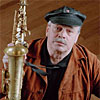
Phil Woods
saxophone, alto1931 - 2015
"One of the ways I dealt with problem solving was to start my own bands. Almost all of my bands were an effort of problem solving, or learning how to play something else. In other words, I try to create an environment in which I'm forced to play a certain way. Then I had to study to play that way. It took me fifteen years to finally figure out all the components of pentatonic improvising. When I started in Phil's band, I was still playing that way, with all that intervallic stuff. One night while we were playing at the Bottom Line in New York, I was sitting at home having coffee after my nap, thinking about this conundrum that I'm not fitting into what was going on. I realized I had a preconception, that I was approaching the bandstand thinking 'I was going to play this way,' which in this band was not good. I was thinking of how I was going to beat this, to get rid of this preconception. I decided I just had to go up there and press the little black and white things down, and see what happens. So that night, all my bebop playing came out—it was as if I had been playing it for fifteen years, that was the amazing thing. It proved that changes in the brain are always global, the pentatonics had improved my bebop playing, I couldn't believe it," he recalls excitedly.
Galper left the Woods quartet in 1990, to pursue his own trio with drummer Steve Elkington and bassist Todd Coolman. His playing had been greatly influenced by the trio playing of Jamal and Powell. He had witnessed first hand the intuitive, conversational approach of Bill Evans, where the three players are equal partners. He was searching for a musical environment where the playing was not a cohesion of three or four musicians. He wanted the music to achieve a oneness that avoided those degrees of separation. Galper articulates the feeling by stating, "It's not looked at as separate parts, it's looked at as a whole. If you have a quartet, it's not four pieces, it's a whole. The amount of information that's being transmitted among the musicians, both overt and covert, is awesome."
Galper's time with Woods didn't stop the ever curious and inventive pianist from exploring his own musical conceptions, including those concerning the liberation of time to facilitate freedom in the playing of himself and his bandmates. Bebop pioneer

Dizzy Gillespie
trumpet1917 - 1993
"Dizzy said, 'The magic is not in the notes, it's in the rhythm.' I got to play "Con Alma" with him seven nights in a row, just duo. The last night was one of my best recording experiences, except on Dizzy's cadenza at the end. For some reason, I couldn't wait anymore, I came in and hit a wrong chord. Dizzy made it right, and he never said anything, but what bothers me is my last chord with Dizzy was wrong! I have to live with that! He was the perfect example of the oral tradition," recalls Galper with a hint of nostalgia.
Galper's new trio began to shed the notions that had become rudimentary attributes of the jazz piano trio. His personal vocabulary contained the voicings of Powell and Jamal, and his approach to trio playing was much like that of

Bill Evans
piano1929 - 1980
"That has been my focus, to maximize my growth every minute I'm playing. I'm going to push the envelope. I'm not going to sit back," he points out.
Fully reaping the benefits of the conception, and creating truly pioneering art would take time however, accelerated by the arrival of drummer Bishop to the trio some fifteen years into the experiment. Bishop's ability to follow the movement of the music was indeed unique, and vital to the flow of the music that while seeming outside, was in reality an open-ended, and open-minded view of standard time signatures. Most importantly, the trio still could swing like mad. Bishop's drum and cymbal work seemed to put the finishing touches on Galper's vision. Then approaching his seventies, Galper was indeed continuing to push the envelope, unwilling to rely on his past successes to maintain his visibility as an artist.
"You have to take your cues, and then you have to run with it. When I realized how much fun I was having, how free it was, and still swung, I thought great, let's see where this takes us. It was an adventure into the unknown from the beginning," he reminisces.
Galper had created a revolution of time, pushing the boundaries of the music in his distinct rubato style. An open and interpretive concept of time where the musical continuum achieves a high degree of elasticity constituted the single most significant innovation in the piano trio form since Evans' conversational take that established a community of sound between three participants. The trio found a home at Origin records, now a legacy of seven albums beginning with the 2007 release, Furious Rubato (Origin, 2007).
"The last thing I thought I would ever be able to do is innovate, it's so rare. So I didn't think of it in those terms. Other people told me it was innovative, and I said, 'Oh really?' But that wasn't in my mind at all. It was a total surprise to me that people considered it revolutionary," he recalls.
While major players such as

Keith Jarrett
pianob.1945
Of course, Galper is frequently asked how a musician attains the conscious prerequisites to enter "the zone." As a listener, and more so as a writer, it is difficult to verbalize the feeling of music that has entered this conceptual realm. Never one to back down from an intellectual challenge, Galper takes a pretty sound shot at it.
"The key is your ego, and that's where the problem is. As long as your ego is there blocking you, as long as your sense of self is there. In eastern religions you have to spend years getting rid of your sense of self, practicing this and practicing that. Music in the zone goes to the same place. I get the same feeling from it, as if I had been practicing meditation for twenty years. The place comes from way back in the early brain. There's an overriding, compulsive desire to want to know how you sound when you're playing. You can't do that while playing and get to the zone. You can't give a shit how you sound and what you're doing. You have to shut down the critical, frontal lobe, basically. There is a neural pathway from the ear that bypasses the frontal lobe and goes directly to the early brain, which is where all the work is being done. That's where the processes are. If you're thinking, 'how do I sound.' you're screwed. You have to give that up," he says.
Like a traveler who arrives at his or her destination, remembering little of the journey there, the trio has had moments where the music became such an elemental result of collective consciousness, that precise memory of the performance was replaced by an overriding feeling of deep connection to the music entirely separate from place and time. Galper recalls such an experience performing at Ithaca College in upstate New York. "We were playing a concert at Ithaca College. Here's how it felt—we went up to the bandstand and then we walked off. I said to John (Bishop), 'Didn't we just play for an hour and a half?'" What happens in the zone, stays in the zone.
Galper knew, in terms of the rubato concept and his career as a whole, that his vision had come to complete fruition with the release of Cubist (Origin, 2018). Adding tenor saxophonist

Jerry Bergonzi
saxophone, tenorb.1947
"I was really happy with the way Cubist came out. I got to the point after that album that now I was to the point Bill Evans talked about, which is being in competition with yourself," he recalls.
Last year, Galper and Bishop came across an exceptionally good recording of the trio's November, 2016 run at the Yardbird Suite club in Edmonton. To Galper's ear, the playing was so immense that he literally did not recognize that it was his own playing.
"I didn't recognize it. Because none of us played anything that we had played before. It was all totally in the zone," he says.
The two made an immediate decision to release the recording on Origin, and to appropriately entitle it, The Zone. In many ways, the recording brings the rubato style of playing full circle, performed with a sense of ease that removes all prohibitive boundaries to creative freedom. There is a profound sense of enjoyment in the vibe of the performance, as they dig into compositions from Galper and Johnson.
While Galper himself received an education in music from Berklee College of Music, much of his learning was gained through the oral tradition. Jazz music has traditionally been taught this way from generation to generation, a notable achievement considering the sophisticated nature of the music that rivals European classical music, and then some. In modern times, there is great difficulty in finding the balance between learning jazz in an institution of higher learning, and gaining the necessary experience learning the craft on the bandstand. Galper was a foundational force in the creation of the New School in New York City. Retiring from his 14 year stint at Purchase Conservatory in 2014, he has never bought into the concept of learning jazz in the classroom, and then taking it to the bandstand and expecting to have positive results. There are inevitable mistakes and embarrassments to experience at jam sessions, and on the bandstand in general that are unavoidable, and highly teachable. Balancing the oral tradition and western institutional learning is the challenge young prospective artists face in the 21st century.
"There's the western approach and the African approach. I don't think the two are opposed," states Galper. "I have a thorough theoretical education from Berklee. Guys have asked me how I can play with all that knowledge. I tell them I just put it in my back pocket and play. Most of the colleges are using an informational approach. Here's the information, you have to figure out how to use it. That's fine. The oral tradition is just as difficult as the western. There are 6,700 non-western languages, each of which has its own completely distinct oral tradition. No two of them are the same," says Galper
Inevitably for any jazz musician, the eternal pursuit is to achieve a sound that is original, and provides a vehicle for self expression. While one acknowledges that pursuit of finding "the zone" is a zen-like aspiration akin to spending decades shooting arrows at a single target for an unassuming master, many find the tools quickly and enter the zone via a chanced upon individual identity that allows an egoless transition into a collective consciousness with other musicians. Those tools are gathered through experiences and explorations within the oral tradition.
"Why do self-taught musicians always have such incredible identities? You can always tell who they are. It's because the primary goal of the oral tradition is to develop your own voice. Period. Not to absorb information and play it on the bandstand. Individualism is the basis of the oral tradition. That's what's remarkable about that approach, because it really brings you, the individual out," says Galper.
Galper's collected musical wisdom has been sought out now by several generations of young musicians. According to the master however, the real learning, the real gathering of his collective wisdom is best accessed by hearing and watching him play. That's the base value of the oral tradition.
"The beauty of the oral tradition is that you learn about the music from the playing of it. It teaches you. You want to learn all the theory you want? Just copy, if it sounds good that means the rules were done right. The only way to get better is to play a lot," he says.
As jazz gravitates more towards western educational concepts to teach future generations of students, Galper has growing concern of the western presumptions, and indeed biases, getting in the way of the African, oral tradition that has been a huge part of what makes jazz music unique and sustainable.
"A major concern is the typical western, white prejudice against things they don't understand. They try to destroy what they don't understand. That's where we are now in jazz education," he states wryly.
Back in the autumn recesses of Sullivan County, the normally reclusive Galper is feeling perhaps not quite as out of place as some of us during the Covid-19 pandemic. Of course, there is that weekly gig at Rafter's Tavern in Callicoon he is missing, and the hang that accompanies it. The piano Galper donated to the cause there sits vacant, no longer vibrating with the thunderous playing of Galper, who throughout his career has never been shy about giving the keyboard a solid workout during a performance. He feels nonetheless fulfilled, having achieved everything he set out to do in his career. Of course, as he has stated, he has done it without having a "name," an easily recognizable brand as do same generation pianists

Herbie Hancock
pianob.1940

McCoy Tyner
piano1938 - 2020
"I have no reputation in New York City after all these years, because I was always on the road, and I was always playing. That's the only reason how I got to where I got. Now those gigs where you could play in a club for a week or two, are all gone. You go on a ten day tour, and you spend three days getting your chops back," he muses.
Galper does have a name, and a legacy well familiar to those who are in some way immersed in this great art form. Musicians to this day seek his advice, and see him as the innovator that he certainly is. Jazz fans and musicians alike marvel at his remarkable facility, that can at times be ferocious, and at others, cerebral and even melancholic. His insights as a master of the form will continue to influence generations to come through his recordings, and books he has authored. His late career rubato innovations changed music in terms of form and approach, and are etched into the history of the revolution that is jazz music. Through all of the ruminations of his long and significant career, he carries the same attitude to the bandstand at Rafter's that he has carried to the most famous of stages in the jazz universe.
"My basic goal is not to play the perfect solo, it's to have fun. That's the only reason I go up there," he says. Yes sir Mr. Galper, we get it. That's why we're listening, and have been through sixty years of brilliance.
Tags
Interview
Hal Galper
Paul Rauch
United States
Washington
Seattle
Bud Powell
Ahmad Jamal
George Shearing
John Lewis
Red Garland
Tommy Flanagan
Wynton Kelly
Errol Garner
Jaki Byard
Sam Rivers
Chet Baker
Stan Getz
Joe Williams
Anita O'Day
randy brecker
Michael Brecker
Lou Soloff
Horace Silver
George Duke
Cannonball Adderly
Wayne Dockery
Bob Moses
Chick Corea
Jimmy Cobb
Phil Woods
Steve Elkington
Dizzy Gillespie
Bill Evans
Keith Jarrett
Jerry Bergonzi
Herbie Hancock
McCoy Tyner
Comments
PREVIOUS / NEXT
Support All About Jazz
 All About Jazz has been a pillar of jazz since 1995, championing it as an art form and, more importantly, supporting the musicians who make it. Our enduring commitment has made "AAJ" one of the most culturally important websites of its kind, read by hundreds of thousands of fans, musicians and industry figures every month.
All About Jazz has been a pillar of jazz since 1995, championing it as an art form and, more importantly, supporting the musicians who make it. Our enduring commitment has made "AAJ" one of the most culturally important websites of its kind, read by hundreds of thousands of fans, musicians and industry figures every month.
Go Ad Free!
To maintain our platform while developing new means to foster jazz discovery and connectivity, we need your help. You can become a sustaining member for as little as $20 and in return, we'll immediately hide those pesky ads plus provide access to future articles for a full year. This winning combination vastly improves your AAJ experience and allow us to vigorously build on the pioneering work we first started in 1995. So enjoy an ad-free AAJ experience and help us remain a positive beacon for jazz by making a donation today.

Seattle
Concert Guide | Venue Guide | Local Businesses
| More...




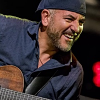
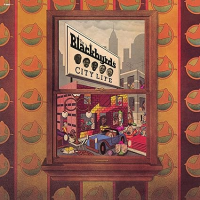

 Buy Now
Buy Now









